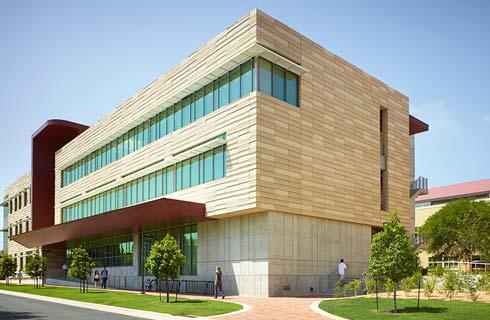- IDP China>
- 课程库>
- 其它>
- 跨学科研究>
- 海洋科学>
- Master of Science in Earth Sciences - Ocean Biosciences (Biological Oceanography)
Master of Science in Earth Sciences - Ocean Biosciences (Biological Oceanography)

学历文凭
Masters Degree

专业院系
Scripps Institution of Oceanography

开学时间

课程时长

课程学费

国际学生入学条件
IDP—雅思考试联合主办方

雅思考试总分
7.0
- 雅思总分:7
- 托福网考总分:85
- 托福笔试总分:550
- 其他语言考试:The minimum PTE Academic score required for graduate admission is Overall Score: 65
CRICOS代码:
申请截止日期: 请与IDP联系 以获取详细信息。
课程简介
相关申请
 预科
预科 奖学金
奖学金 实习机会
实习机会 在校学习
在校学习 跨境学习
跨境学习 校园授课-线上开始
校园授课-线上开始 在线/远程学习
在线/远程学习
开学时间&学费
学费信息仅供参考,请与IDP联系以获取详细信息
| 开学时间 | 时长 | 学费 | 地点 |
|---|
学校排名

世界排名30
数据源:
泰晤士高等教育世界大学排名
本校相关课程

Master of Arts in Music
学历文凭
Masters Degree
开学日期
课程费用总额


Master of Business Administration
学历文凭
Masters Degree
开学日期
课程费用总额


Master of Fine Arts in Writing
学历文凭
Masters Degree
开学日期
课程费用总额


Master of Arts in Latin American Studies
学历文凭
Masters Degree
开学日期
课程费用总额


Master of Arts in History
学历文凭
Masters Degree
开学日期
课程费用总额


Master of Arts in Global Health
学历文凭
Masters Degree
开学日期
课程费用总额

其他相关课程

海洋学博士
 达尔豪斯大学
达尔豪斯大学学历文凭
Ph.D.
开学日期
课程费用总额


海洋学理学硕士
 达尔豪斯大学
达尔豪斯大学学历文凭
Masters Degree
开学日期
课程费用总额


海洋科学理学学士
 达尔豪斯大学
达尔豪斯大学学历文凭
Bachelor Degree
开学日期
课程费用总额


海洋生物学理学学士
 达尔豪斯大学
达尔豪斯大学学历文凭
Bachelor Degree
开学日期
课程费用总额


海洋生物学文学士
 达尔豪斯大学
达尔豪斯大学学历文凭
Bachelor Degree
开学日期
课程费用总额


理学学士-海洋生物学
 新不伦瑞克大学
新不伦瑞克大学学历文凭
Bachelor Degree
开学日期
课程费用总额










 美国
美国
